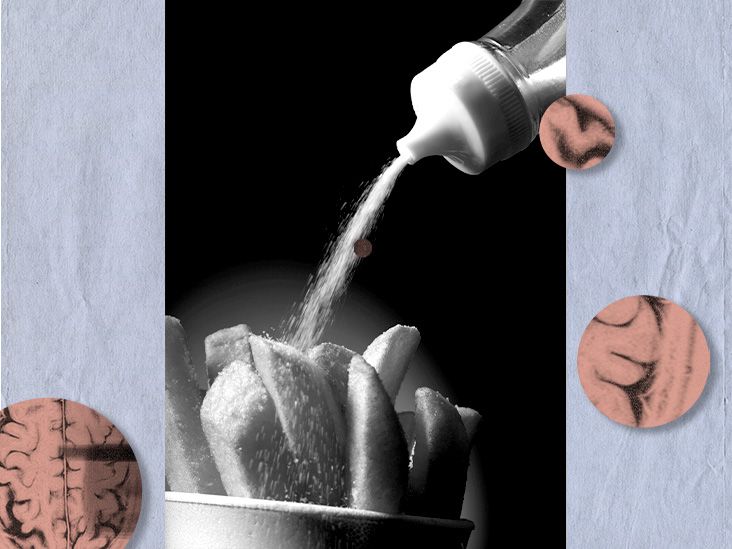A specialist for high cholesterol — a lipidologist — offers advanced care and targeted treatments to reduce the risks of elevated cholesterol levels.
High cholesterol is a significant risk factor for life threatening conditions such as heart disease and stroke, making it critical to catch and manage before complications arise. While some people can manage cholesterol through diet, exercise, and medication, others face persistent challenges due to genetics, underlying health conditions, or resistance to standard treatments.
A specialist for high cholesterol, known as a lipidologist, can help. They can provide advanced care for complex cases, addressing cholesterol levels, taking a comprehensive view of cardiovascular health, and tailoring treatments to individual needs.

A lipidologist is a specialist in high cholesterol. These doctors have expertise in diagnosing, managing, and treating lipid disorders, including elevated cholesterol, elevated triglyceride levels, and hyperlipidemia (high levels of fats in the blood).
These specialists receive advanced training in lipid metabolism, genetic lipid disorders, and the most effective treatments for high cholesterol.
Lipidologists treat individuals with hyperlipidemia,
- have a family history of genetic conditions such as familial hypercholesterolemia (high cholesterol)
- experience severe cholesterol levels unresponsive to standard medications
- experience cardiovascular diseases linked to dyslipidemia
- require advanced testing or therapies to reduce cardiovascular risk
Their work may overlap with that of other specialists, such as cardiologists or endocrinologists, to provide a comprehensive approach to managing lipid-related conditions.
What is high cholesterol?
High cholesterol, medically known as hypercholesterolemia,
There are two main types of cholesterol:
- Low-density lipoprotein (LDL): People sometime call this form “bad cholesterol” because it contributes to health problems.
- High-density lipoprotein (HDL): People may refer to this as “good cholesterol.” It helps remove LDL cholesterol from the bloodstream.
Excess cholesterol, particularly LDL cholesterol, can accumulate in the blood vessels. Over time, this buildup forms plaque, narrowing the arteries and increasing the risk of severe cardiovascular conditions.
High cholesterol usually does not cause symptoms, making regular screening important. Blood tests, such as a lipid panel, can measure cholesterol levels to identify risks early.
Learn more about high cholesterol.
Lipidologists use evidence-based strategies to manage high cholesterol. Treatments depend on the severity of the condition, the individual’s overall health, and other risk factors.
Medications are the first line of treatment for high cholesterol. They
- Statins: A common drug that lowers LDL cholesterol by reducing its production in the liver.
- PCSK9 inhibitors: Injectable medications that lower cholesterol levels significantly.
- Ezetimibe: This drug reduces cholesterol absorption in the intestines.
- Bile acid sequestrants: These help the body eliminate excess cholesterol.
- Fibrates: These target triglycerides, another type of lipid in the blood.
- Omega-3 fatty acid supplements: These can reduce triglycerides in individuals with high levels.
Lipidologists also coach people on the importance of lifestyle changes to complement medication. Key recommendations include:
- Dietary changes: These involve adopting a heart-healthy diet rich in fruits, vegetables, whole grains, and lean proteins, while limiting saturated fats, trans fats, and dietary cholesterol.
- Exercise: A person will need to engage in regular physical activity, such as brisk walking or cycling, to improve lipid profiles.
- Weight management: Maintaining a moderate weight can significantly lower cholesterol levels.
- Smoking cessation, if applicable: Quitting or avoiding smoking improves HDL cholesterol levels and overall cardiovascular health.
Individuals with severe or resistant cases of high cholesterol may benefit from advanced therapies designed to address complex lipid disorders.
One option is lipoprotein apheresis, a procedure that removes LDL cholesterol directly from the blood,
Regular follow-ups and lipid panel testing allow lipidologists to adjust treatment plans and ensure optimal outcomes.
A lipid clinic is a specialized center that focuses on treating high cholesterol and related lipid disorders. These clinics often provide access to:
- expert lipidologists and multidisciplinary teams
- advanced diagnostic testing, including genetic screening
- tailored treatment plans for complex cases
To locate a lipid clinic, a person can:
- ask a primary care doctor for a referral
- search for clinics affiliated with major hospitals or academic medical centers
- check professional organizations such as the National Lipid Association for directories of certified lipid specialists
Other specialists that can help
In addition to lipidologists, several other healthcare professionals can contribute to managing high cholesterol:
- Cardiologists: These focus on reducing cardiovascular risks associated with high cholesterol.
- Endocrinologists: An endocrinologist can address hormonal conditions, such as diabetes, that may contribute to abnormal cholesterol levels.
- Primary care physicians: These provide initial screening and management, referring complex cases to specialists.
- Dietitians: A dietician develops personalized meal plans to improve cholesterol levels and overall health.
- Nurse practitioners or physician associates: People in these fields provide counseling, routine follow-ups, and support for managing cholesterol-related conditions.
Uncontrolled high cholesterol can lead to several serious health risks,
- Atherosclerosis: Atherosclerosis narrows the arteries due to plaque buildup, reducing blood flow.
- Heart attack: A heart attack is a blockage of blood flow to the heart caused by ruptured plaques.
- Stroke: A stroke is a disruption of blood flow to the brain due to cholesterol-related blockages.
- Peripheral artery disease: Peripheral artery disease reduces blood flow to the limbs, causing pain and other complications.
- Aneurysms: An aneurysm is a weakening and bulging of arterial walls, increasing the risk of rupture.
Effective management and prevention strategies for high cholesterol
- Diet: People can prioritize foods high in soluble fiber, such as oats, legumes, and fruits. It can also help to incorporate healthy fats, such as those in nuts, seeds, and fatty fish, and limit saturated and trans fats.
- Exercise: To support overall cardiovascular health, it is best to engage in at least
150 minutesTrusted Source of moderate aerobic activity weekly, including resistance training exercises. - Healthy habits: It helps for people to maintain a moderate weight for their body type through balanced nutrition and physical activity. It is also best to avoid smoking and limit alcohol intake. As much as possible, it is important to manage stress, as chronic stress can affect cholesterol levels.
- Regular screening: A person can schedule routine cholesterol checks. This is especially important for individuals with a family history of high cholesterol or other risk factors.
High cholesterol is a serious condition requiring proactive management to reduce the risk of cardiovascular disease. A lipidologist — a specialist in treating high cholesterol and lipid disorders — can be crucial in this process.
A lipidologist can provide advanced care, including personalized medication plans, lifestyle guidance, and access to cutting-edge therapies. Collaboration with other healthcare providers, such as cardiologists and dietitians, may improve treatment outcomes.
By adopting healthy habits and seeking specialized care, individuals can effectively manage and prevent high cholesterol for improved long-term health.

